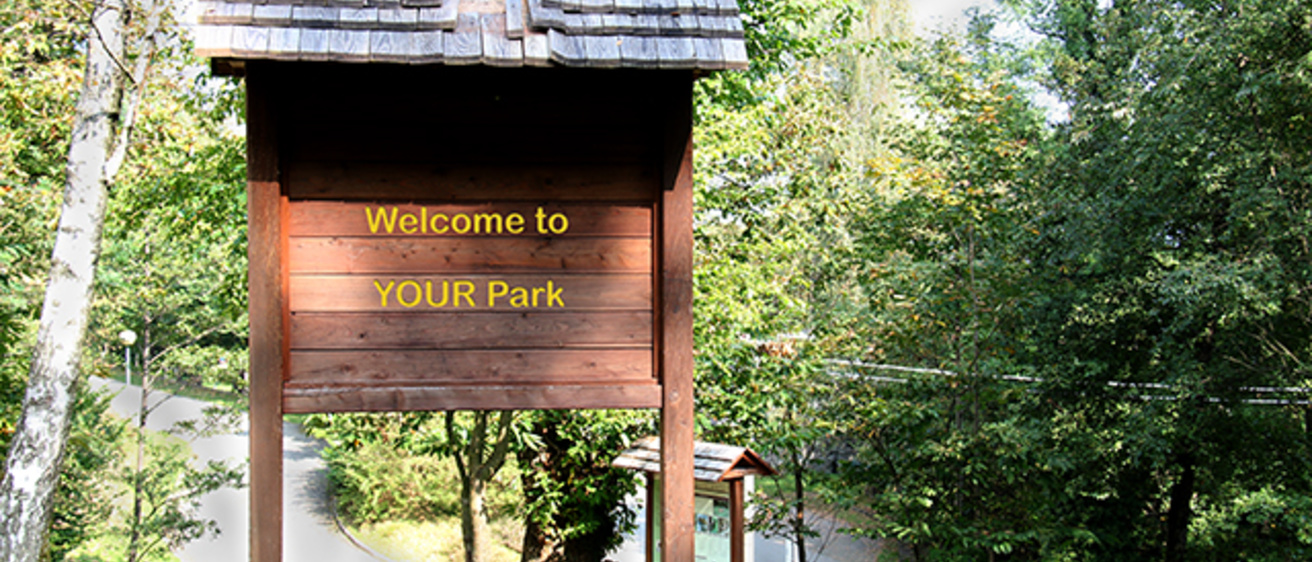More and more cash-strapped governments are looking for alternative methods of funding to maintain parks, roads, and other public spaces, turning to mechanisms like corporate stadium sponsorships or adopt-a-highway programs that leverage private resources.
But a new study from the University of Iowa suggests that an effective way to build support for public goods is to create a sense of psychological ownership so people become motivated to actively care about preserving it. The study suggests that such simple interventions as asking kayakers to come up with their own nickname for a lake, requesting cross-country skiers to plan their ski route prior to departure, or displaying a “welcome to YOUR park” sign to visitors can increase a feeling of ownership that motivates people to pick up trash and make cash donations.
Andrea Luangrath, assistant professor of marketing in the Tippie College of Business and study co-author, says that building a psychological sense of ownership increases peoples’ sense of responsibility, which then motivates them to actively care for the public good.
“Even when people don’t have legal or exclusive ownership of something, it is still possible to have psychological ownership, or a feeling that something is mine,” she says. “This feeling of ownership fosters a sense of responsibility and makes it more likely that they will steward a public good.”
THE STUDY
Luangrath’s research team worked with recreational equipment rental operators at a lake and a state park. At the lake, staff members asked kayak renters to give a nickname to the lake and to write it down. Researchers then watched to see if they were more likely to pick up floating trash that had been planted in the lake.
At the state park, staff members asked cross-country ski renters to trace their planned route on the park’s trail map while the attendant prepared their equipment. When they paid for their rental, they were then asked if they wanted to add one extra dollar to help maintain the park.
THE FINDINGS
--On the lake, 41% of the kayakers who were asked to come up with a nickname picked up the planted trash. Only 7% of those in a control group who were not asked to give the lake a nickname picked up the trash.
--Some of the nicknames people gave to the lake were Big Buddy, Lake Lake, and Sunshine.
--On the trails, 86% of the cross-country skiers who mapped their route in advance agreed to pay an extra dollar for park preservation. Many also agreed to volunteer, make future donations, and promote the park on social media. Only 32% of skiers in a control group who were not asked to map their route agreed to donate an extra dollar.
Luangrath says that coming up with a nickname for the lake or planning a ski route encourages people to invest themselves in the public good which generates a sense of ownership and emotional investment of the lake or park. Katmai National Park in Alaska does something like this with its annual Fat Bear competition every fall, which gives people the chance to vote online for the park bear they believe is most impressively bulking up for its winter hibernation.
THE BOTTOM LINE
As governments struggle to maintain facilities and public spaces, developing policy strategies that build a sense of psychological ownership can lead to increased public support.
“The COVID-19 pandemic has forced people to find more recreational outdoor activities, which has increased traffic to many local, state, and national parks,” Luangrath says. “Despite environmental concerns associated with overuse, we show that simple interventions based on psychological ownership theory and investment of the self can enhance stewardship of these public goods.”
Luangrath’s study, “Caring for the Commons: Using Psychological Ownership to Enhance Stewardship Behavior for Public Goods,” is published in the Journal of Marketing and is co-authored by Joann Peck of the University of Wisconsin-Madison, Colleen Kirk of the New York Institute of Technology, and Suzanne Shu of Cornell University.
Media contact: Tom Snee, tom-snee@uiowa.edu, 319-541-8434
